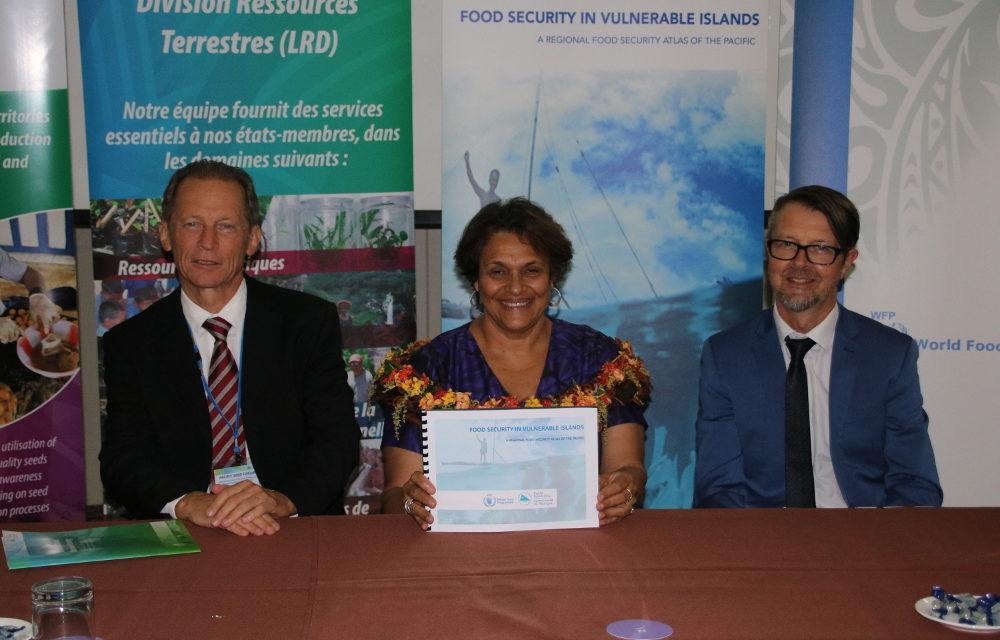Regional Seed Forum concludes opening day with launch of Pacific Food Atlas, Pacific Seed for Life Initiative and the Pacific Islands Extension Strategy
Participants at the Regional Seed Forum taking place this week in Nadi, Fiji, saw the launch of three key agricultural initiatives. The first of its kind, the Pacific Food Atlas, Pacific Seed for Life Initiative and Pacific Islands Extension Strategy, are set to create an agricultural framework for Pacific Communities that will accelerate progress towards Sustainable Development Goals.
The Regional Seed Forum is coordinated by the Pacific Community (SPC) with support from the Australian Department of Foreign Affairs and Trade (DFAT). The Forum gives countries, research institutions, development partners and farmer organisations an opportunity to deliberate on agricultural bottlenecks within the Pacific Island countries and in the process better understand risks and institutional processes that will enable them to prioritize interventions.
The Forum also focused on SPC’s Centre for Pacific Crops and Trees (CePaCT), the region’s sole gene bank of crop plant genetic materials belonging to the Pacific. The CePaCT currently holds over 2,000 accessions of 17 different crops – with Taro the main crop of specialization. CePaCT’s holdings include materials from 16 Pacific Island Countries and Territories and 30 non-Pacific countries. In 14 years of work, CePaCT has distributed over 7,000 accessions to people and institutions in 22 Pacific Island countries and territories and to 31 countries outside of Pacific. It has the largest collection of taro accessions globally earning the Centre global recognition as the world’s leading facility for taro and other edible aroids.
Hon Inia Seruiratu acknowledged SPC and its development partners, in particular DFAT, in their support of CePaCT and its work in conserving and promoting Pacific agrobiodiversity, saying, “Your partnership in developing the agriculture sector in the Pacific is commendable for it is raising the profile of food security in the face of climate change. Your assistance to agriculture has provided a myriad of opportunities that has assisted in linking the Pacific’s Agriculture sector to the rest of the world and build resilience of the most vulnerable communities. This Pacific Seed Forum is another example where we are able to bring together national, regional and global partners to strengthen understanding of national priorities, identify opportunities and synergies and partnership mechanisms for effective coordination and establishment of robust impact pathways”
The Deputy Director General of SPC, Dr Audrey Aumua, in her opening remarks reflected on challenges in the Pacific region with regards to the threats to food security as a result of climate change, highlighting that “We, as a collective body, need to continue to explore innovative solutions to address our most critical challenge, starting with access to quality seeds that are climate smart”.
Improving and strengthening CePaCT operations and processes will ensure that the Centre is able to respond effectively to the development needs of the region, supporting livelihoods through the conservation, evaluation and safe exchange of genetic diversity.
Media contact:
[email protected]
Useful link:
The Pacific Islands Extension Strategy
